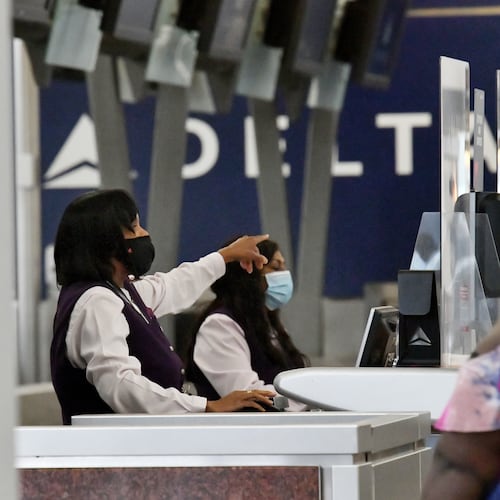A total of 837,000 Americans filed new jobless claims over the last week, fewer than the previous week’s figure of 870,000.
The U.S. Department of Labor released the new figures Thursday morning, marking the fifth consecutive week in which claims have come in below 1 million.
Bloomberg was estimating the number of claims would come in at 850,000.
The still-elevated number of people seeking unemployment benefits each week reflects an economy that has recovered only about half the 22 million jobs that were lost to the pandemic.
Overseas, unemployment rose for a fifth consecutive month in Europe in August and is expected to grow further amid concern that extensive government support programs won’t be able to keep many businesses hit by coronavirus restrictions afloat forever.
The jobless rate increased to 8.1% in the 19 countries that use the euro currency, from 8% in July, official statistics showed Thursday. Some 13.2 million people were unemployed, and the number of those out of work rose by 251,000.
While Europe’s unemployment rate is still modest compared with the spike seen in many other countries, economists predict it could hit double digits in coming months as wage support programs expire. A resurgence in infections in many countries has meanwhile led to new restrictions on businesses and public life that may have to be broadened and could lead to more layoffs.
European governments have approved trillions of euros (dollars) to help businesses, setting up or bolstering programs to keep workers on payrolls. In the region’s largest economy, Germany, some 3.7 million people are still on furlough support programs. With no clear end to the pandemic in sight, the government has extended that through the end of 2021. The program pays more than 70% of the salaries for workers put on short hours or no hours. The European Central Bank is injecting 1.35 trillion euro ($1.57 trillion) into the economy.
Outside the 27-country European Union and its 19 members that use the euro, Britain faces a sharp increase in unemployment as the government plans to replace a broad furlough support program at the end of October with a more limited version. Some economists expect the unemployment rate to double to 8% by year-end. A lack of progress on reaching a new trade deal with the EU is only likely to worsen things.
In the U.S., the jobless rate fell sharply in August by 1.8% to 8.4%, after a sharper increase during the spring. The U.S., which has less in the way of labor market support programs, saw unemployment spike as high as 14.7% in May, followed by a steep fall as businesses and states reopened.
The recession has in some cases accelerated painful change that existed before the pandemic, such as technological shifts in the auto industry. Automakers Daimler and Renault, airline Lufthansa, oil company Royal Dutch Shell and travel concern TUI have announced sweeping cost-cutting and job reductions.
Greece recently emerged from a crippling financial crisis after spending most of the last decade in recession. Unemployment numbers are again rising fast, reaching 16.7% in the second quarter, with the numbers expected to worsen after government funding for furlough schemes runs out.
The Associated Press contributed to this report.
About the Author
Keep Reading
The Latest
Featured



